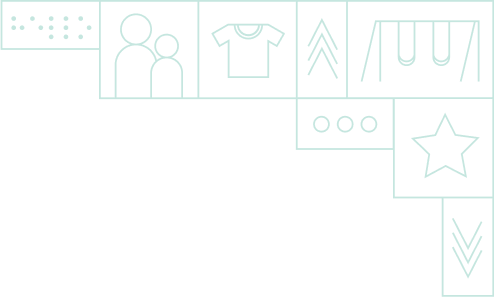Find Child Care
Find Child Care
Finding the right child care provider looks different for every family. The Child Care Aware® of Kansas easy-to-use search tool helps you navigate your options within our state-wide database of care providers to find the right fit for your family. Narrow down providers through filters like:
- Your child’s age
- Location and hours
- Number of openings
- Years in operation
- Type of facility
- DCF provider status
- Financial assistance programs
*You will be asked to create an account
or call 877-678-2548 for immediate support Monday – Friday 8am – 5pm




Understanding your child care options
Understanding your child care options
There are many child care options available, depending on what your family is looking for from a provider. The most significant decision is whether you prefer a child care center or an in-home provider.
Licensed Center-Based Child Care:
With more caregivers on staff, child care centers usually have more options than in-home providers. Many have structured, classroom-like environments with age-specific activities and set hours.
Centers
Child care centers are typically larger facilities with different-aged classroom-like environments. These programs are typically open 8-10 hours per day.
Head Start
These are free federal education programs for children from eligible low-income families. Early Head Start is for ages 0-3; Head Start is 3-5.
Licensed Preschools
Preschool sessions are offered for a max of three hours for children aged 30+ months who are ineligible for kindergarten. Licensed preschools don’t serve a meal.
School-Age Programs:
School-age programs are for kindergarten through 6th graders, usually before and/or after school or during summer break. These programs are often run by schools or community partners, offering students community and school-based care outside the traditional school year.
Licensed Home-Based Child Care:
Home-based child care facilities are usually operated within a provider’s home, but can be offered in other settings. The provider has the ability to choose the age ranges they serve, scheduling, and availability, as long as they comply with state and federal guidelines. In-home facilities are usually more flexible with days and times of care and are required to provide daily activities.
If you receive Child Care Assistance from the Kansas Department for Children and Families, certain relatives may be eligible to provide home-based care for your children.
Licensed Family Home
Family child care homes have one adult who cares for as many as 10 children at a time, depending on the children’s ages.
Licensed Group Home
Most group child care homes have two adults who care for as many as 12 children, depending on the children’s ages.
How to choose quality child care
How to choose quality child care
As you can tell, there’s a lot of information to consider when weighing your child care options. We’ve simplified it into a step-by-step guide to help you choose the right child care provider for your family’s needs.
Use the child care search from Child Care Aware of Kansas to compare providers that may meet the criteria you have in mind.
You can use this to narrow down best-fit providers based on your family’s needs — including location, hours, cost, type of program, and results of child care inspections. Then, you can review what providers have availability when you need it.
Find Child Care
Your budget will play a big part in the final decision. Your weekly or monthly child care cost will vary depending on the type of child care you choose, your specific provider and your child’s age.
To figure out how much you can afford to spend on child care, use Child Care Aware’s budget calculator.
Make My Budget
Need financial assistance?
You may be eligible for financial support through the Kansas Department for Children and Families Child Care Assistance program. Find out if you’re eligible for this financial assistance program today.
There may also be additional program-level financial assistance resources available. For instance, you qualify for a scholarship, a sibling discount, or reduced fees based on your income, family size or other factors. Ask your provider if their program offers any of these resources.
Doing your research is about asking the right questions. Here are a few questions to ask potential providers:
- Are you licensed?
- What is your adult-to-child ratio?
- How are children supervised?
- What health and safety training do caregivers receive?
- Have background checks been performed for all staff members?
- What is the rate of staff turnover?
- Are there spaces for indoor and outdoor play?
- What does an average day look like? Is there a balance of play, learning, and rest?
- How do you handle discipline, nutrition, transportation safety, and emergency preparedness (like pediatric first aid and CPR)?
- Have all staff members been trained in safe sleep practices?
Find answers by visiting child care providers in person, speaking with them over the phone, or browsing their websites. You can also review their health and safety inspection reports.
For more things to consider, check out our quality care checklist: English | Spanish
A child care contract is an agreement between the provider and the parent or guardian that outlines the terms of care. These contracts contain important information that you can use to compare your options, including:
- Rates and fees
- Schedule, including vacation and holidays
- Sick child policies, including which adults have permission to pick up your child
- Disenrollment procedures
This information may also be covered in a parent handbook or other statement of policies or procedures. You can ask the provider for this information as well.
Even after your child is enrolled in child care, it is still a good idea to continue learning about your provider and stay involved with your child’s care.
Here are a few ways to stay involved:
- Volunteer: Ask your provider about coming in to read a story or joining the class for a field trip or other activity.
- Ask for updates: If you can’t spend time in person, request regular updates from your provider about the program and your child’s progress.
- Check in with your child: Be sure to check in with your child. Does he/she like their caregivers? Is he/she learning and having fun?
If you suspect a problem, file a complaint with KDHE. An on-site visit will be conducted to determine regulatory compliance.
Still can’t find a quality care provider?
Still can’t find a quality care provider?
You started your search early, followed all the steps and still can’t find an appropriate care provider. Now what? Take a deep breath. You still have options.
- Try a different location. If you’ve been looking near your home, check for places near work or on your commute.
- Get on the waiting list at every program that could work for you.
- Ask a relative if they are willing to enroll with DCF as a provider to care for your child.
- Join efforts in your community to help increase child care options.
- Reach out to a Child Care Resource & Referral specialist for support. These individuals work on your behalf to find new opportunities and help you explore new options for your family.





24/7 Support:
1-800-332-6378
24/7 Support:
1-800-332-6378
No question is too big or too small when it comes to parenting. Connect with resources and services in your community with 1-800-CHILDREN or 1-800-332-6378, powered by Kansas Children’s Service League. Free and confidential support is available in English, Spanish, and multiple other languages.
Find support near you:
FAQs
FAQs
You may qualify for financial assistance, reduced fees or free tuition based on your income, family size, and other factors. Learn more about Child Care Assistance.
There are many local avenues for support. No matter what you need, there are likely options available to you. Learn about financial assistance for which your family may be qualified. Learn about support for housing costs.
KDHE administers regulations that providers must follow in order to maintain their child care licenses. These Health and Safety regulations are designed to keep children healthy and safe while in care. If you suspect a provider isn’t meeting state regulations, file a complaint with KDHE. An on-site visit will be conducted to determine regulatory compliance and to give you peace of mind.
Child Care Licensing at KDHE performs annual surveys and compliance checks on all licensed child care providers. You can find information on your specific provider’s history by reviewing inspection reports and monitoring visits.
The Kansas Department for Children and Families offers a child care subsidy for foster children through the Foster Care Child Care program. Learn more about Foster Care Child Care now.
Parents can get support and advice 24/7 by calling 1-800-CHILDREN. You can also learn more about resources and support for children with disabilities here.
Development can vary from child to child. Learn more about developmental milestones and age-appropriate skills from Kansas experts. You can also use your child care provider or medical provider as a resource as well.
Child Care Referral Specialists work for local Child Care Resource and Referral agencies to help parents take the guesswork out of choosing care. They provide referrals to local providers who fit your needs. They also provide information on state licensing requirements and where to get help paying for child care. Find a child care referral specialist near you.
The state recently awarded grants to 10 Kansas communities to assist in creating Family Resource Centers. The new centers will serve as community hubs to support families in their own neighborhoods. Parents will have easier access to programs and services like job skills training, early childhood programs and nutrition services. These centers are administered in partnership between DCF and the Kansas Children’s Service League (KCSL). Learn more about these centers or see if your county is included in coverage here.
